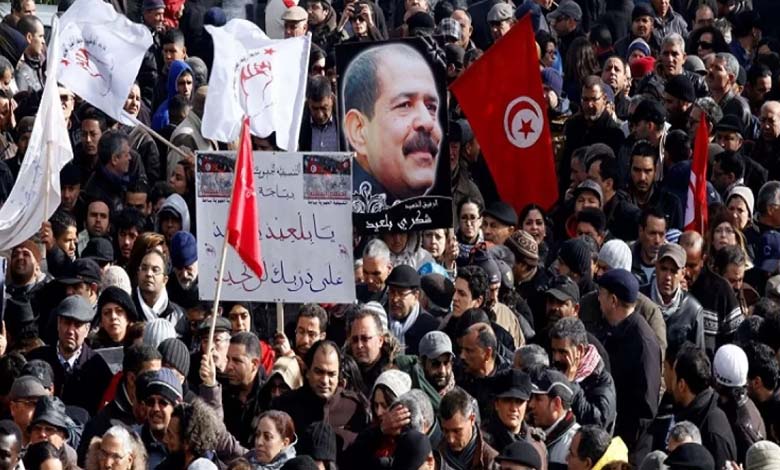Tunisia’s President to the Muslim Brotherhood: There Will Never Be a Retreat in this War Against ‘Locust Swarms’

As part of his fierce war against the Muslim Brotherhood, which has wrought corruption in the country and exacerbated its crises, Tunisian President Kais Saied affirmed that he is waging an uncompromising war against the corrupt and the corrupters who have infiltrated all sectors.
During a meeting with Minister of Justice Leila Jaffel and Minister of Finance Sihem Boughdiri on Wednesday, Saied emphasized that there will never be a retreat in this war against what he described as “locust swarms” that are constantly attacking the state institutions and the country’s resources.
He stated, “There must be a legislative revolution in many fields,” considering that “there is a war we are waging relentlessly against the corrupt and the corrupters,” referring to the Muslim Brotherhood. He spoke about “an individual with a media institution (unnamed), and there are those who hire him every day for disruption, believing that he can distort this path,” and Saied added that “this person has outstanding loans in a government bank, and no measures have been taken against him until today, nor has any action been taken against him.”
The Tunisian President also considered during the meeting “that we are in a liberation war and not in an electoral campaign as promoted,” indicating that in 2019, he did not conduct an electoral campaign, but rather an explanatory campaign, and it is about responsibility.
He stressed that “the demands of the Tunisian people for justice, freedom, and national dignity will be met,” pointing out that “the people will hold the corrupt accountable, and it is up to the administration and officials to do their part.”
Following the events of 2011 that toppled the regime of former Tunisian President Zine El Abidine Ben Ali, what is known as the “General Legislative Amnesty Decree” was issued, under which around 7,000 employees, most of whom were members of the Muslim Brotherhood, were appointed in government institutions, and the Ennahda movement deliberately appointed its followers in the state apparatus based on loyalties rather than competence and experience.












